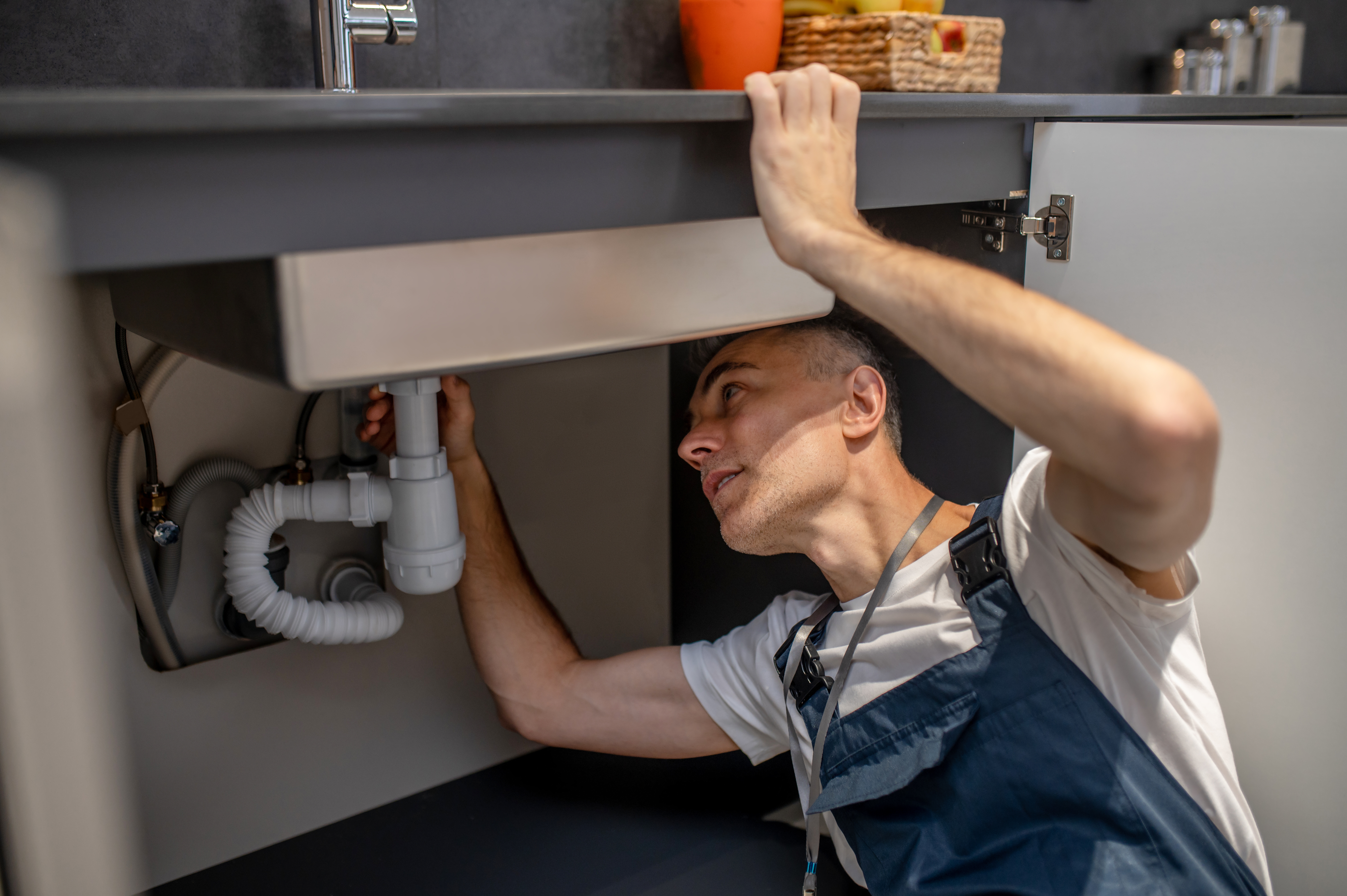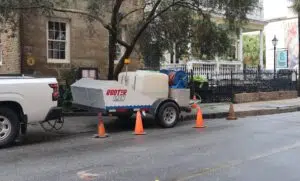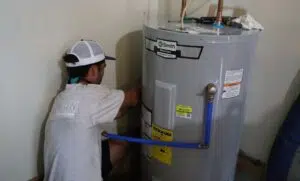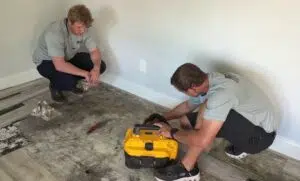A plumbing emergency is an event that every homeowner hopes they will never have to face. The truth, however, is that the pipes, drains, fixtures, and other elements of your home’s plumbing system are likely to fail you in some way or another at some point in their life span. You can prevent most major emergencies with regular maintenance and attention from a trusted plumber in your area, but it is also important for you as the homeowner to know how you should respond if a plumbing emergency happens.
While the most important step is to call an emergency plumber, it will take them some time to arrive at your house. In the meantime, there are things you can do to minimize the damage; avoid a greater negative impact on your floors, furniture, and landscaping; and save yourself some money in the end. Here are some valuable tips for how to respond to a plumbing emergency in your home while you wait for the plumber to get there.
Different Types of Emergencies
There are three big categories of plumbing emergencies that we commonly see among our customers. Depending on just what is going wrong with your system, you’ll want to quickly focus on the feature of the plumbing, whether that’s a valve, fixture, or release mechanism, that will temporarily stop the problem until a professional can address it in a more permanent way.
1. Drain Clogs
We find that the most common call we receive regarding emergencies with plumbing in Charleston, SC is a clogged drain. A simple clog in a bathtub or shower doesn’t really qualify as an emergency, unless of course the water has been left running so long that it has overflowed and caused floor/ceiling damage in the surrounding area.
Likewise, a toilet clog usually simply requires the homeowners to leave the fixture unused until the plumber can arrive to solve the problem. If the home only has one toilet, however, the issue may feel more urgent!
The more severe drain clog problems occur with appliances that use large amounts of water and run more or less automatically, such as washers and dishwashers. If the drain pipes leading away from these units become clogged, the result can be water overflowing into your living area. Obviously the easiest and quickest way to stop a single fixture from overflowing is to turn it off.
However, in some cases a drain clog affects the entire house–we see this when a large amount of non-organic, tough material is sent down a toilet or sink, or when an intruding tree root finally causes a complete blockage of the sewer line. In this case, the homeowner may be able to release the pressure in the drain line by opening the cleanout, located somewhere on the property outside the home.
Many homeowners don’t know where their cleanout is or even what it is! This is simply an access point to the sewer line, covered with a cap that can be removed with a large pipe wrench. While it’s not recommended for a non-professional to work on their home’s plumbing system, in a clog emergency it may be beneficial for the homeowner to remove this cap and release the overflow at that point rather than having it back up into the home. Once the plumbing professionals arrive, they can resolve the clog and replace the cleanout cap properly.
One great preventive maintenance tip is to have a device called a “popper” installed on your home’s cleanout cap. When a clog puts a high level of pressure on the plumbing system, this device pops up, opening the cleanout and releasing the water and waste into the surrounding area. This automatically prevents overflow inside the house and can avoid a lot of mess and expense. Ask us about installing this device, as well as other great pro tips for preventing clogs!
2. Equipment Malfunctions
A second major category of plumbing emergency is an equipment or fixture malfunction. An appliance, sink, or toilet that suffers a broken component or glitch in the controls can quickly become a major source of danger to your home. In the great majority of cases, the immediate response to a fixture malfunction is to shut off the water flow, either to that individual fixture or to the entire house.
Locate Valves
Most of us are familiar with the growing feeling of dread that occurs as a clogged toilet’s water level quickly rises to the edge of the bowl! Acting quickly in that situation can make the difference between resolving the issue safely and having a huge mess to clean up. When a drain is clogged or a faucet breaks, the first step is to shut off the flow of water to the fixture. It’s a great idea to take some time and show the entire family where the valves are located for each sink and toilet in the house, so that whoever is on the scene when the disaster strikes is able to quickly stop the water and stabilize the situation.

Identify Main Shutoff
Every home has a main water line incoming from the larger water system. Usually this connection is near the road, and at some point near that connection there is a main valve that can be turned to shut off all water to the house. Unfortunately, most homeowners would be hard pressed to identify exactly where that valve is, much less how to access it and turn it off manually. However, that’s just what they should do if a plumbing emergency involves the entire house or if they can’t locate quickly enough what valve inside the house needs to be turned off to minimize the damage.
Prepare to save your home from potential plumbing emergencies by purchasing your own curb key, locating your main shutoff, and asking your plumber to show you how to manage the valve. This is also important information to have if you plan to leave your home unoccupied for a long period of time–by shutting off the water, you can ensure that a burst pipe or fixture malfunction doesn’t flood your home while you are away.
Water Heaters
Water heaters are a special case among plumbing equipment, and they are more complicated to address in the event of an emergency. Make sure you know where the water valves are for your water heater so that you can shut them off if there is a leak, and if you have an electric water heater, identify which breaker you can use to turn it off as quickly as possible. If you have a gas water heater, things are a little more complicated–read on to see how to respond in that case.
3. Gas Problems
Stabilizing a gas water heater that has a leak or other problem means, in addition to shutting off the water, shutting off the supply of gas to the flame. Ask your plumber to show you where this valve is, how to use it, and how to reignite the pilot light when you turn the gas back on. Once again, this knowledge will help you prepare your home for extended absences by turning off your gas water heater while it is not being used.
It’s critical to note, however, that any time someone in the home smells gas, the correct response is not to go looking for the problem and attempt to stabilize it. Instead, everyone should evacuate the building immediately and call the gas company to inform them of the situation. There could be a serious health and safety risk inside the house, and only trained professionals should address it.

Contact Your Plumber for Help
Once you have mitigated the damage from a plumbing emergency to the best of your ability, your next step is clear: get in touch with a local plumber that you trust to help you resolve the problems in a permanent manner. If a pipe needs to be repaired, a drain needs to be unclogged, or an appliance needs to be replaced, your plumber can assess the need and give you a quote for the work. Ideally, by acting quickly at the first sign of trouble, you will have minimized your expenses and saved your home from expensive water damage.

To save time, make sure that you have the number of a trustworthy emergency plumber in Charleston, SC saved on your phone as well as those of everyone in the family. You want to be able to make the call as quickly as possible without browsing through the different options online and trying to decide which one to choose! Rooter-Man of SC is available 24 hours a day at 843-402-7799, and we respond as quickly as possible–in most cases we are able to be on site at your home within 24 hours of your call. Be sure to also save the number for your local gas company so that you can notify them of any gas odor or other problem in your home as quickly as possible.







